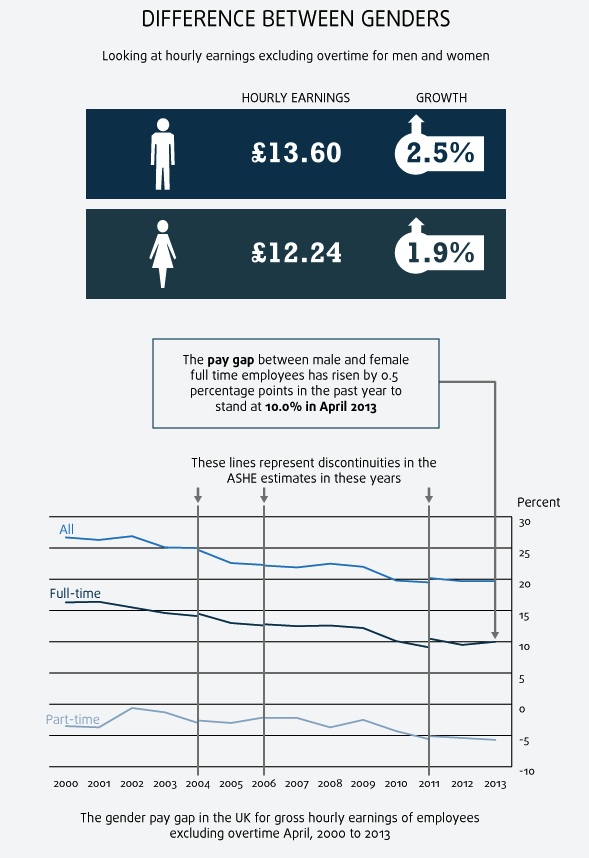The gender pay gap has risen to 10%, up from 9.5% in 2012, according to research by the Office for National Statistics (ONS).
Its Annual survey of hours and earnings, 2013 provisional results, found that, for the year ending 5 April 2013, full-time earnings for men stood at £566 per week, up 1.8%, compared with £459 for women, up 2.2%.
The research also found that, in April 2013, median gross weekly earnings for full-time employees were £517, up 2.2% from £506 in 2012.
Median gross annual earnings for full-time employees, who had been in the same job for at least 12 months, were £27,000, an increase of 2.1% on the previous year.
In April 2013, 10% of full-time employees earned less than £7.28 per hour, excluding overtime, an increase of 1.5% compared with the previous year.
At the other end of the scale, 10% of full-time employees earned more than £27.02 per hour, which was also an increase of 1.5% compared with the previous year.
In April 2013, median gross weekly earnings for full-time employees were highest in London, at £658, and lowest in Northern Ireland, at £460.
Frances O’Grady, general secretary of the Trades Union Congress (TUC), said: “This year has seen a shock rise in the gender pay gap after years of slow, steady progress. Ministers should be ashamed of presiding over this latest dismal record on pay.
“It is not right that, in Britain today, women still earn 15% less per hour than men, a pay gap that costs full-time women over £5,000 a year.
“The UK’s five million women part-time workers are faring even worse on pay, with two in five now earning less than the living wage.
“The light touch, voluntary approach to tackling gender pay inequality is clearly failing. We need tougher action to force employers to look at their pay gaps.
“The government can lead the way by making all new public sector vacancies available on a part-time or flexible basis, so that women don’t have to trade down jobs if they need to work fewer hours to balance their career with caring responsibilities.”
